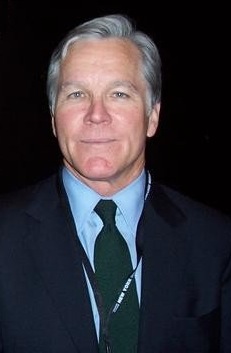Man muß das erfreuliche Ereignis dieser letzten Wochen und den Horror, die Feier und den Schrecken, Unterhaltung und brutale Machtpolitik zusammendenken, um den historischen Moment zu erfassen, in dem wir leben.
Bill Keller, Chefredakteur der New York Times, hat es getan, indem er den chinesischen Triumph bei der Olympiade und das russische Auftrumpfen im Kaukasus miteinander in Beziehung setzt und analysiert, wie diese beiden Ereignisse sich zu der Hoffnung von 1989 verhalten, die liberal-demokratische Neuordnung der Welt stünde bevor.
Was wir im Moment jedoch erleben, ist das Selbstbewußtsein der neuen Autokraten, die ihre Stunde gekommen sehen:
Die Chinesen feiern ihre Rückkehr auf die Weltbühne durch die Leistung ihrer Athleten und die Organisationsfähigkeit des Regimes, das hier vor aller Augen beweisen kann, dass man auch ohne (politische und kulturelle) Freiheit sehr erfolgreich sein kann.
Die Russen haben die Gunst der Stunde ergriffen, die Ära der Ostausdehnung des westlichen Staats- und Gesellschaftsmodells durch EU und Nato zu stoppen – und möglicherweise sogar zurückzudrehen. Mit dem Öl- und Gasgeld, das vor allem der energiehungrige Westen ihnen einspielt, haben auch sie eine unfreie Gesellschaft konsolidieren können und holen nun zum geopolitischen Rollback des Westens aus.
Der Westen aber hat sich in einen Kampf mit der historisch ohnehin zum Absterben verurteilten Kraft des politischen Islamismus verstricken lassen, und seine Kräfte bleiben einstweilen im Irak und in Afghanistan gebunden, während die neuen Tyrannen ihren Moment der historischen Genugtuung genießen.
Bill Keller:
The striking thing about Russia’s subjugation of uppity Georgia was not the ease or audacity but the swagger of it. This was not just about a couple of obscure border enclaves, nor even, really, about Georgia. This was existential payback.
Bill Keller Foto: Hunter Kahn
It turns out that if 1989 was an end — the end of the Wall, the beginning of the end of the Soviet empire, if not in fact the end of history — it was also a beginning.
It gave birth to a bitter resentment in the humiliated soul of Russia, and no one nursed the grudge so fiercely as Vladimir V. Putin. He watched the empire he had spied for disbanded. He endured the belittling lectures of a rich and self-righteous West. He watched the United States charm away his neighbors, invade his allies in Iraq, and, in his view, play God with the political map of Europe.
Mr. Putin is, in this sense of grievance, a man of his people, as visitors to the New York Times Web site can see in the sampling of breast-beating commentary from Russian bloggers. It is safe to assume that Mr. Putin’s already stratospheric popularity at home has grown to Phelpsian proportions, not least among the long-suffering military.
In China, 1989 was the year that a spark of liberal aspiration flickered on Tiananmen Square, and was decisively extinguished. That was another beginning, or at least a renewal: of Chinese resolve. In May of that year, in the midst of the Tiananmen euphoria, Mikhail S. Gorbachev visited Beijing, and two visions of a new communism stared each other in the face.
The protesters on the Chinese pavilion held banners welcoming Mr. Gorbachev as a champion of the greater freedom they sought. Meanwhile, the visiting Russian delegation marveled at the abundance in Chinese stores, the bounty of a policy that chose economic liberalization without political dissent.
The Chinese and Russians scorned each other’s neo-Communist models, but in some ways they have evolved toward one another. Both countries now tolerate a measure of entrepreneurship and social license, as long as neither threatens the dominion of the state. Both countries have calculated that you can buy a measure of domestic stability if you combine a little opportunity with an appeal to national pride. (The Chinese “street” felt no more sympathy for restive Tibetans than the Russian blogosphere felt for Georgia.) And both have discovered that if you are rich the world is less likely to get in your way.
Mehr hier.
